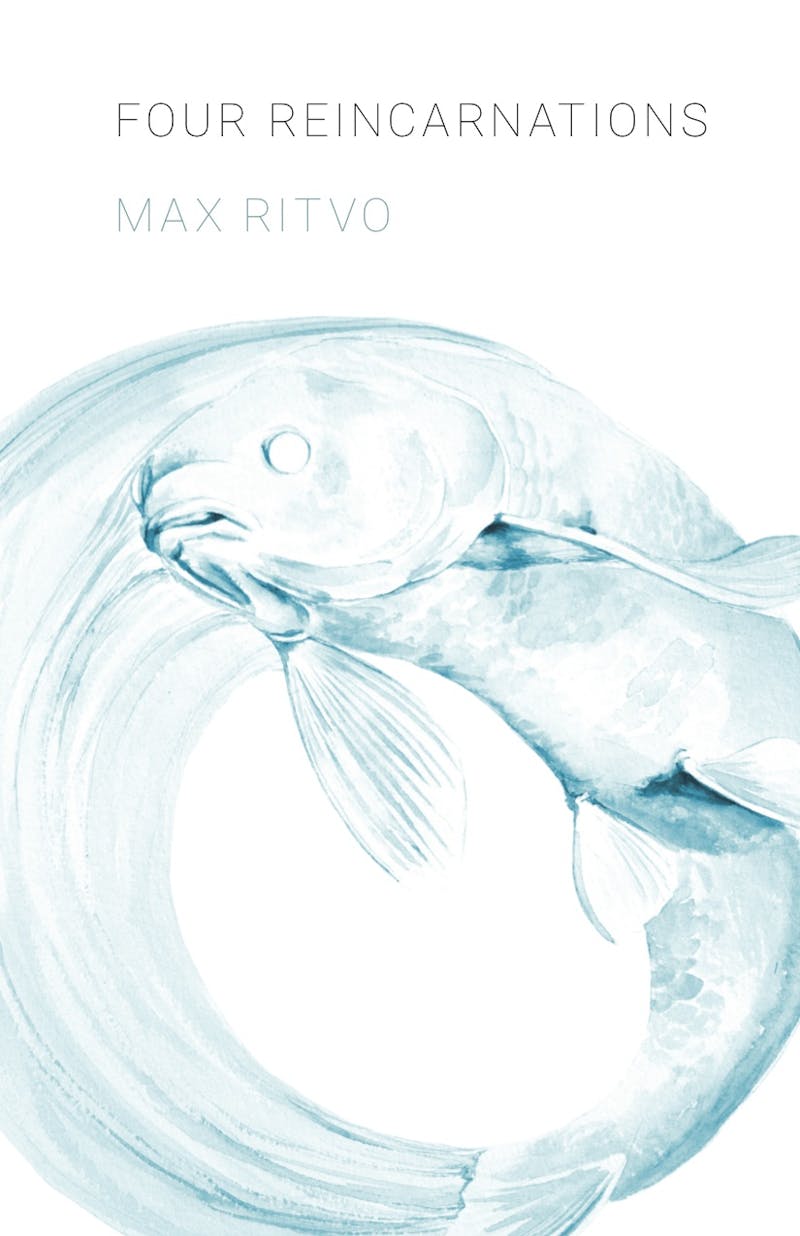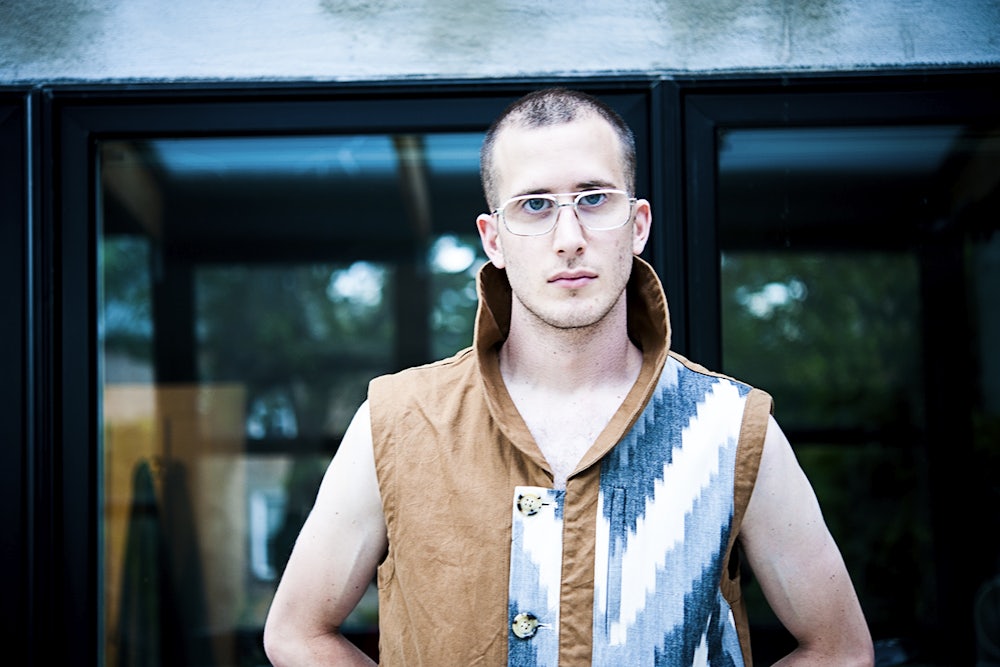
Max Ritvo, a poet of uncommon grace, vision and originality, died in August at the age of 25. You can read his poems in the New Yorker and Boston Review, and you can even hear and see his poetry read aloud and animated on WNYC. Max wrote with an incandescent mind, a fearless and playful heart, and a thrilling ear. He received his M.F.A. in poetry from Columbia and won a 2014 Poetry Society Fellowship for his chapbook, Aeons. He wrote of the body and his cancer with a scope and metaphysics beyond any simple narrative about illness.
In his poem Afternoon, he writes, “When I was about to die / my body lit up / like when I leave my house / without my wallet. What am I missing? I ask, patting my chest pocket.” His poems have both a staggering range and a palpable intimacy. To his friend Melissa, who was taken by Ewing’s sarcoma the year before Max was, he writes: “I have spoken to you of heaven—I simply meant the eyes are suns that see. / Seeing is the faces’ nervous delicious Lord.”
I was lucky enough to interview Max Ritvo this past summer about his beautiful book, Four Reincarnations.
Sarah Ruhl: Four Reincarnations engages illness, spirituality and the body in utterly direct and transcendent ways. Can you talk a little bit about this word “spirituality”? I feel it’s a word that is out of fashion in poetry circles, and only in fashion in certain sections of the bookstores these days. How can the poetry world reclaim the world of the spirit in a secular age?
Max Ritvo: How can the poetry world reclaim the world of the spirit in the secular age? What a wonderful question! It points at a big, terrible misunderstanding we’re all in.
Secularity has done a lot to challenge our relationship to anything supernatural. But spirituality needn’t be intrinsically supernatural. It can be paranatural. Or sometimes just natural.
I am a spiritual person. It means a lot to me to be able to say this. But my spirituality doesn’t require me to pray a number of times a day, or accept any particular cosmological order, or even to believe in things that there aren’t proof for. All my spirituality asks of me is that I put myself in situations that feel holy. That take my breath away and make me go I can’t believe something as beautiful as this is happening to me.
Religions are amazing at giving people feelings of holiness. They’re great spirit-catalyzers. The first time I heard Schubert’s Agnus Dei at a Mass, it made me feel like my forehead had never belonged anywhere, but suddenly knew that it was right where it belonged, holding my face together. As the minister of my best friend’s wedding, I spent some time meditating in a room where someone had prayed every day for the past fifty years, never a day missed. The air I breathed in that room—full of an enormous, palpable effort of love—was the air I breathed into their ceremony an hour later. And it made my speaking more beautiful than I could’ve managed on my own.
I also think blueberries are holy. When I see a bowl, in the kitchen, I sometimes get filled with cravings so strong they border on hallucination. As I fantasize about the blueberries, I think about fMRI’s. That the neurons I use to imagine blueberries being eaten are identical to the ones that fire when I actually, really eat them. On an fMRI we see the exact same neurons fire during both feast and fantasy. Imagined blueberries just produce weaker electrical activity. In a funny way then, my cravings are prophecies. They reincarnate, or pre-incarnate, the actual brain that will be in my skull when the blueberries are in my mouth.
My spirituality, I’ve found, is richest when I let myself use tools that are both secular and mystic to make the world holy.
I write poems about Buddha. I also have a poem about Blindsight, a neurological condition in which an evolutionarily ancient part of the brain allows an otherwise completely blind person to “see.” Though the person describes seeing absolutely nothing, they slot discs into flaps positioned around their body with astonishing accuracy. I have written a poem in which Elohim and boiled green beans both require lavish cogitation and the full resources of my heart. My family is holy, and so I write them poems. I can’t think of anything right now I could immediately disqualify as the spiritual centerpiece of a poem.
I don’t think the spiritual world needs to be claimed or reclaimed by anyone or anything. Let religion lay hands upon it. Let secularity lay hands upon it. But let the hands be gently laid. Let anything that clasps offer the kind of prayer it wants to pray. Let this all be poetry.
SR: Can you talk about the significance of the word reincarnation in the title of your book?
MR: Each of the four sections in the book is a different life. The first witnesses the birth of the universe, the second goes through a nasty break up, the third tells of perfect love in a time of cancer, and the fourth sends poems from an underworld. But every “I” in the book is me, however much time has passed between sections, however different the voice sounds as it passes into the world. So the lives are reincarnations.
A reincarnation also contains within it the depths of death and the peaks of life and heaven. To reincarnate is perhaps the most difficult and courageous journey one could ever take. You go to hell and back. You leave behind not just your loved ones, but your memory of them. And it’s a journey without a destination. It takes a ton of chutzpah to reincarnate.
Furthermore, reincarnation is sort of a defiant screw you to my cancer and death. If I can have four reincarnations I can have four hundred. Reincarnation is a kind of immortality where I’ll keep crawling out of hell and back to the card table to play another hand forever.
SR: You have a background in comedy and improvisation and performance, which is perhaps rare for a poet. Do you see your poems as improvisations or performances at all?
MR: I think all poems are performances. Any time a poem is read out loud, it’s performed. (Sometimes quite badly!) And I think language performs itself in your head when you read alone. We made language up to perform for one another. There’s this kind of intrinsic intersubjectivity in words.
Improvisations... now that’s more complicated. (And I should say up front, I perform primarily sketch comedy and mostly voraciously consume improv.) Improv is in some ways extremely messy and anarchic. If, god forbid, someone ever decided to restage an improv show, the first thing they’d start doing is making a lot of cuts. At the same time, improv relies on tropes and performance clichés to get the performers on the same page, and also as a touchstone for the audience. Since there’s so much that lurks in the unpredictable waters of an improv show, everyone takes any flotation device thrown. I don’t my want my poems to have excesses, and I don’t want any stock characters showing up in them.
But improv has these flaws because it’s so ambitious. It’s something new on stage every time! I want my poems to thrill like that. And an improv scene has to, by definition, make room for whatever the performers, and even the audience, puts into it. I want my poems to be so brave, so capacious, so Whitmanian.
Any improv performer will tell you that the first rule of improv is to say yes to what your scene partner offers and the second is to say and, and build upon your scene partner’s offering with your own. And I hope that my poems, as I write them, are willing to say yes, and in their more solitary way. If a metaphor wants to get out of hand, I have to let it get out of hand. Say yes to it, let it and me. Improv performers really listen to one another. They listen very deeply. And I want to listen to my poems. And, for that matter, I want my poems to listen to you.
SR: How do you know if a poem is listening to you?
MR: When your memories, things you’ve never disclosed to anyone, start appearing in your mind as you read the poem. When you discover that a poem links up to a chain of images from your own life like a song links up to its music video. And one more bellwether—when you read a poem, you ask yourself, “What is going on in me internally, to cause me to feel this way?” I call this Fruitful Bewilderment, and it’s the only way I ever want my readers to feel bewildered.
